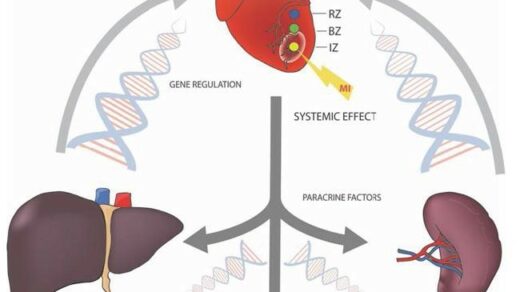In an effort to learn more about dementia, researchers evaluated 178 elderly Brazilian participants in a study on estrogen receptor polymorphisms.

Dementia is used as a general term to describe the age-related decline in mental capabilities that are severe enough to interfere with day-to-day activities. This disorder is multifactorial and stems from genetic, metabolic, and environmental interactions. In the elderly, Alzheimer’s disease is the most common cause of dementia.
As we continue to live longer, statistics have shown that the world’s elderly population is quickly increasing. Becoming elderly often coincides with a change in lifestyle, occupation, and income—which can contribute to the onset of dementia and other chronic-degenerative diseases. The conditions that affect this growing population may include hypertension, diabetes mellitus, osteoporosis, atherosclerosis, Alzheimer’s disease, or a combination of these disorders.
“In clinical practice, many neurocognitive disorders have similar or overlapping symptoms, making differential clinical diagnosis difficult [5].”
Additionally, in countries with areas of less thriving socioeconomic conditions, such as Brazil, researchers say that the aging process is accompanied by a higher prevalence of these diseases. Brazilian scientists conducted a research study in a cohort of local participants to evaluate a potential association between dementia and polymorphisms, or alternative phenotypes, in the estrogen receptor alpha (ERα) gene. This study was chosen as the cover paper for Oncotarget’s Volume 11, Issue #50.
Estrogen and Dementia
Previous research studies have identified a number of genetic variations and single-nucleotide polymorphisms associated with an increased risk of Alzheimer’s disease. Previous studies have also demonstrated an association between cognitive and hormonal disorders during the phases of menopause and postmenopause. In addition to other useful functions in the body, the estrogen hormone provides protection against oxidative stress, facilitates the formation of synapses between neurons in the nervous system, and regulates neurotransmission in brain systems that are associated with cognition.
“It has been described that the regional distribution of estrogen receptors (ER) within the brain is surprisingly similar to the geography of brain pathology in Alzheimer’s disease [10].”
Researchers recognize a potential relationship between estrogen and dementia, and studies on this topic among cohorts in other countries have previously confirmed the possibility of this association. The researchers in this study postulated that estrogen-receptor gene polymorphisms could also contribute to susceptibility to Alzheimer’s disease in their Brazilian cohort.
A Brazilian Cohort
The cohort in this study consisted of 178 elderly Brazilian adults between the ages of 68 and 84 (median age: 76); split into 105 control (not presenting signs of dementia) and 73 case (displaying clinical predictive signs of dementia) participants. The researchers evaluated these participants for variations in activity, weight, age, education, smoke and alcohol consumption, hypertension, and dyslipidemia (an aberrant amount of lipids in the blood). The participants also underwent two predictive dementia tests: a Mini-Mental State Examination (MMSE) and a Clinical Dementia Rating (CDR), which were analyzed by the researchers. The case participants displayed positive results in their CDR and MMSE tests.
Each participant’s DNA was extracted and genotyped for two polymorphisms in the ERα gene. Given that two polymorphisms have been more frequently studied by other researchers, the team chose to analyze PvuII and Xba in their sample populations.
Results
Researchers found that the participants with the pp genotype expression of the ERα PvuII gene displayed a higher odds ratio associated with dementia, in accordance with their CDR test.
“These findings corroborate other studies that found that polymorphism in ER [estrogen receptor] alpha is associated with an increased risk of AD [Alzheimer’s disease] in Caucasian [13], Chinese [14], Japanese [15], UK [16] and European [17] populations.”
In particular, the pp genotype of ERα PvuII was a significant variant for females, however, the control and case participants in this cohort were more female than male. This was a potential constraint of the study and the researchers recommend evaluating additional heterogeneous cohorts in the future. Although:
“Studies performed in Latin America showed slightly higher rates for female participants in all age groups [18].”
Additional findings from this Brazilian cohort showed that participants who presented with greater cognitive deficit had backgrounds of basic education or incomplete basic education. The ERα XbaI polymorphism did not show significant associations with dementia in the studied groups.
Conclusion
“This finding may be useful for the identification of a possible set of significant genetic and clinical biomarkers for better understanding pathophysiology, early diagnosis, and management of dementia.”
As larger populations of people around the globe become elderly, matters of aging and solutions for Alzheimer’s and dementia-related disorders become increasingly relevant.
“In an updated UN projection in 2019, the number of people aged 65 and over was 129 million in 1950, rising to 422 million by 2020, and expected to reach 2.5 billion by 2100.”
Click here to read the full scientific paper, published in Oncotarget.
—
Oncotarget is a unique platform designed to house scientific studies in a journal format that is available for anyone to read—without a paywall making access more difficult. This means information that has the potential to benefit our societies from the inside out can be shared with friends, neighbors, colleagues and other researchers, far and wide.
For media inquiries, please contact media@impactjournals.com.



